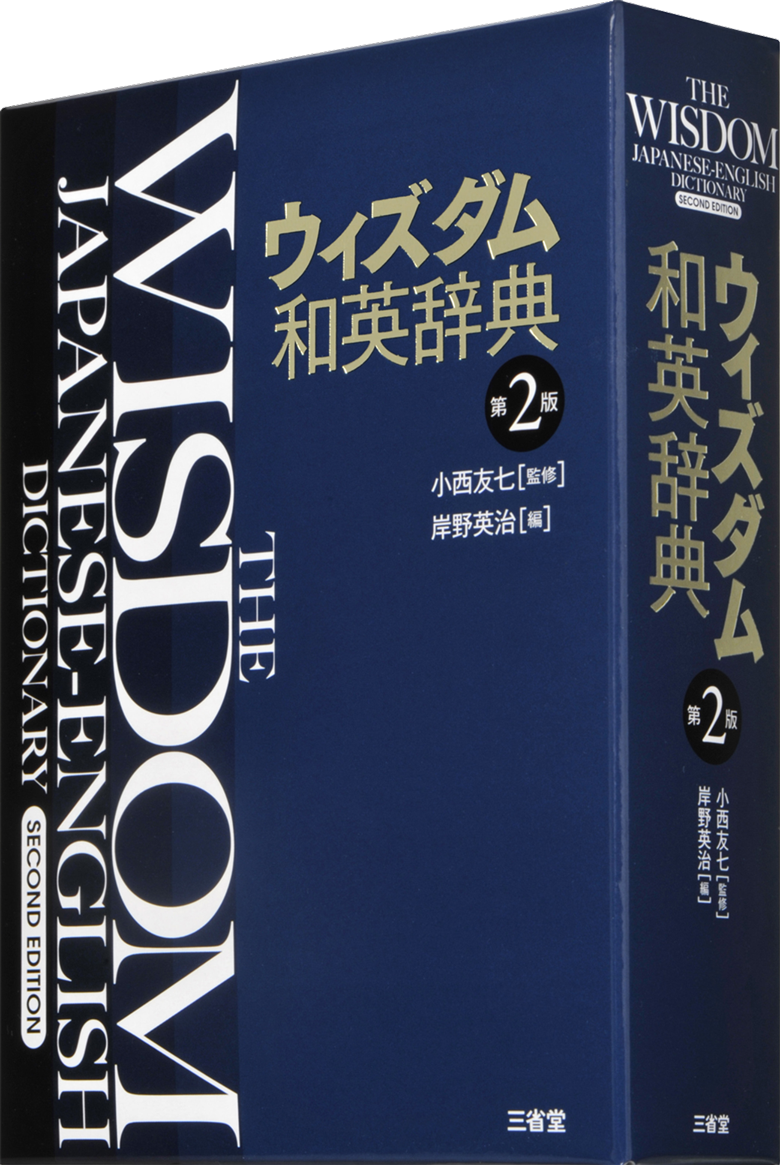−as in−
asは頻度が高い上,意味用法も多く,思い通りに使いこなすのはなかなか難しい。今回は,asの後に前置詞を伴う形,特にinを伴う形について見てみたい。
as は,『ウィズダム英和辞典』(第2版)〔s.v. as (接)2a〕にもあるように,様態を表して「…(する)ように,…(するの)と同様に,…とおりに」といった意で用いられることがあるが,前置詞を従えて,「…のような[に]」の意でも用いられる〔s.v. as (接)2a (語法)〕。同箇所から,as inの用例を引用しておこう。
(1) In science, as in life, simple questions rarely have simple answers. 科学においては, 人生におけるのと同じように, 単純な疑問に単純な答えがあるなんてめったにない
上のような用法は,接続詞用法のasの延長線上の用法で,文脈から明らかな部分が省略されているわけであるが,下に紹介する2つの用法は,上のような用法がさらに拡張されて用いられるようになったものである。
まず,1つ目は,例を挙げるときに,「(たとえば)Aみたいに」の意で用いられる用法である。上で挙げた「…におけるのと同様に」の意が,比較対象の意図を失い,理解を助けるための単なる例示機能に変化したものである。時に,後にコンマを伴うことがある。いくつか例を挙げておく。
(2) “Farther” is used when you mean distance—real distance, as in, “He can throw the ball farther than she can.”「farther」は距離, たとえば「彼は彼女よりも遠くへボールを投げられる」で使われているように実際のある距離をさす
—『ウィズダム英和辞典』(第2版)〔s.v. as, 成句 as in (A), (2)〕(3) The position of customer service representative is an important one in a company. Some companies have only one person through whom all customers make contact. In other companies, there may be many—as in grocery stores and department stores. In these businesses, every salesperson represents the company. —Zuowski, J. et al. (1983) Between The Lines, Second Edition. Harcourt Brace & Company.
(4) General, mm, general, yes Is the, is the projected grant likely to go up at the same rate as in, as in nine ninety four, ninety five? There’s a sort of fifty percent increase, it seems a, you know, a huge increase, but is that going to settle down?
—British National Corpus, J3P(5) According to a traditional definition of “information” about a stock (as in, a stock’s price reflects all the available information the market has about it), Piecyk’s report was not new.
—American National Corpus, Article247_4264
2 つ目は,話し言葉で,聞き手との共通知識を前提に,特定の事項を思い出させようとするときに「例の, あの」の意で用いられる。(2) - (5) で紹介した用法と違って,as inの独立性が高く,多くは文頭でコンマを伴って用いられる。また,(6) や (9) の例のように,話し手がすぐに思い出せないときに,“As in … (?)” と言うことによって,聞き手がその後を続けることを促すこともある。
(6) “I’ve got an e-mail from Bob.” “Bob? As in . . .” “As in, he’s going to be president.”「ボブから電子メールをもらったよ」「ボブですって, あの…」「あの, 次期社長のね」
—『ウィズダム英和辞典』(第2版)〔s.v. as, 成句 as in (A), (3)〕(7)
TRU: You haven’t seen Mark, have you?
LINDSEY: As in, your ex? Why would he be here?
TRU: I invited him.
—Tru Calling, Episode 1-07(8) (McPhee Residence — Jack is walking through the hall past Andie’s room when he hears her giving directions to someone on the phone. He stops outside her room as she hangs up.)
Andie: Okay, you take a left on Gilborne, and we’re the 3rd house on the left. So I’ll see you around 8 o’clock? Kate! Come on, you have to come. It’ll be so much fun. Besides, you have to get your mind off things, right? Okay great, I’ll see you then. Bye!
Jack: Kate. Kate who?
Andie: Kate Douglas. She’s coming up from Rhode Island for the weekend to crash with us.
Jack: Kate Douglas, as in, my ex-girlfriend?
—Dawson’s Creek, Episode 3-14(9)
JACK: Sam! [Hands her a drink]
SAM: Thank you Sir.
HAMMOND: Colonel Jack O’Neill, Jacob Carter.
JACK: Carter? As in . . . ?
SAM: As in, my father Sir, yes.
—Stargate SG-1, 2X09
こういった用法は母語話者にとっては当たり前すぎて,英米のESL/EFL辞典でさえ抜け落ちることが多く,日本の英和辞典でも取り上げられていないことが少なくない。コーパスを分析すれば,母語話者によるESL/EFL辞典にも見られない内容を記述することができるようになるよい例であろう。







